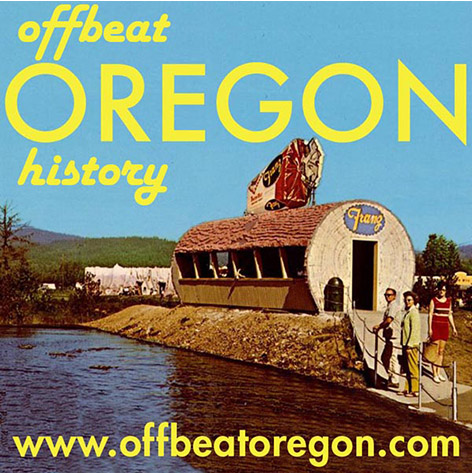STATEWIDE, 1920s:
Fall of the house of Klux: Greed and hypocrisy
Audio version: Download MP3 or use controls below:
|

And the cherry on the sundae was a literacy test to be applied to all Oregon citizens, Japanese and otherwise, which they would have to pass in order to "earn" their right to vote in the state. But while the Klan-backed pols were joyfully enacting their agenda of ethnic chauvinism, it was becoming increasingly clear to large numbers of Oregonians that their talk of moral uplift didn’t mean much. They were, if anything, even more corrupt than the politicians they’d replaced. They were also getting increasingly strident in the hotel-ballroom road shows that functioned as the Klan’s primary recruiting tool — strident, and sometimes hilariously tone-deaf. In Silverton, on March 5, 1924, J.R. Johnson, pastor of Portland’s Sellwood Christian Church and “exalted cyclops" of the Klan, thundered passionately against the Roman Catholic church and its practices … possibly unaware that the overwhelmingly Catholic town of Mt. Angel was just four miles away. There was some rivalry between the two towns, and plenty of Silverton residents agreed with Johnson that the Church was “the most dangerous power to the U.S. today.” But to judge from the cautious tone of coverage in the next edition of the Silverton Appeal, it’s probably safe to guess Johnson didn’t exactly have the town eating out of his hand. The final blows to the Klan came in 1924, when its hand-picked candidates on the Multnomah County Board of Commissioners were caught trying to hustle a padded construction bid — to the tune of half a million extra dollars, the equivalent of $6.8 million today. In the ensuing hubbub, the dishonesty of the Klan commissioners was exposed, and it turned out to be both breathtaking and shameless. Within just a few months the entire commission was turned out of office by an angry Portland public, which then turned its wrath on the horse the commissioners had, as it were, ridden in on. (Here's a link to the Offbeat Oregon article about that attempted bridge hustle.) About the same time, rumors started circulating that Grand Dragon Fred Gifford was using the Klan as his own personal cash kitty. Then, late that year, the Klan’s newspaper editor, Lem Dever, quit the organization. Early in 1925 he published a tell-all article in a Portland journal, affirming what most Oregonians already believed — that that those rumors were true. All this evidence of corruption and hypocrisy surfaced just in time for the next election season, and the Klan’s influence at the state level collapsed like a bad soufflé. It was shortly followed by the eviction from power of most Klan-backed politicians at the local level as well. Men who probably had been in the Klan — most notably Portland mayor George Baker, and possibly even governor Walter Pierce — hastened to disclaim any affiliation; Pierce lost his bid for re-election in 1926 anyway, and Baker was trounced in his bid to win a seat in Congress. And the following year, the compulsory school bill was ruled unconstitutional before it could go into effect. By the early 1930s, Oregon’s Ku Klux Klan had dwindled to almost nothing, and for most Oregonians it was nothing more than a distant and uncomfortable racist-vigilante dream.
|
Background photo is a postcard image showing the summit of Middle Sister, from a picture postcard published around 1950.
Scroll sideways to move the article aside for a better view.
Looking for more?
On our Sortable Master Directory you can search by keywords, locations, or historical timeframes. Hover your mouse over the headlines to read the first few paragraphs (or a summary of the story) in a pop-up box.
... or ...

©2008-2014 by Finn J.D. John. Copyright assertion does not apply to assets that are in the public domain or are used by permission.
